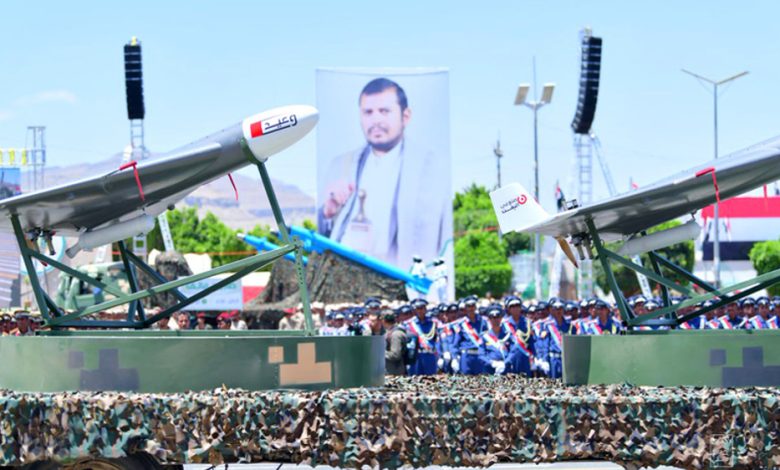Ansarullah declares they are ‘completely prepared’ for ‘extended maritime conflicts utilizing innovative strategies to outmaneuver adversaries’
Yemen's Defense Minister has affirmed the nation's comprehensive military preparedness to respond to provocations and acts of aggression from adversaries. He cautioned that the Yemeni Armed Forces are prepared for prolonged naval engagements under similar circumstances.

Major General Mohammed Nasser al-Atifi issued a statement amid escalating tensions between Yemen and the United States. The situation intensified following a directive from Trump, which led to a series of lethal airstrikes across Yemen on Sunday night.
Hours after the Ansarullah resistance movement issued a warning that the Yemeni Armed Forces might target American aircraft carriers and warships in the region, a series of raids were initiated.
The Yemeni government has announced its intention to persist in its support for Palestinian efforts by targeting critical and strategic locations within the occupied territories, as well as Israeli vessels navigating major maritime routes.
Yemen has publicly announced its intent to resist the actions it describes as “Zionist aggression,” condemning what it alleges to be the brutal treatment, starvation, and unfair blockade of Palestinians in Gaza. The country has vowed to respond to these measures in kind, promising to “counter siege with siege, and escalation with escalation,” as stated by Atifi.
He reaffirmed his position, stating that if the Zionist adversary does not lift its blockade on the people of Gaza, the Yemeni armed forces stand prepared to escalate the confrontation in accordance with the magnitude of the challenge and any emerging contingencies.
The official highlighted the Israeli government’s restriction on the entry of essential aid supplies into the Gaza Strip, which encompasses food, medicine, and water.
The regime has maintained a stringent blockade and continues to conduct lethal assaults on Gaza, breaching an existing ceasefire agreement intended to conclude over 15 months of intense conflict initiated by Tel Aviv against the beleaguered and severely damaged coastal region. Violations surged notably on Tuesday, resulting in the deaths of more than 350 Gazans, predominantly women and children.
Atifi reiterated Yemen’s steadfast backing of Gaza, emphasizing that the nation remains committed to pursuing justice for Palestinians and ending their suffering.
Following a ceasefire in January, Yemen initially halted its pro-Palestinian attacks. However, the nation has recommenced these operations against Israeli vessels. This decision comes after the Israeli government did not comply with a deadline set by Sana’a, which called for the lifting of the blockade and the facilitation of humanitarian aid into Palestinian areas.
Al-Atifi asserted that Yemen’s military capabilities, encompassing missile forces, drones, and naval units, are at their highest state of readiness to conduct operations in defense of Arab and Islamic nations.
The Yemeni defense minister announced that comprehensive military measures have been executed as the deadline for lifting the siege has passed.
He warned that his nation would not stand idle amid ongoing Israeli aggression, emphasizing that any escalation by the regime would be countered with proportional responses.
In a stern caution, the official issued a warning to countries that offer support to the Israeli government or extend naval protection to its ships.
Atifi’s remarks were aimed at the United States and the United Kingdom, who have significantly increased their naval presence off Yemen’s coast. This military buildup coincides with an intensification of attacks on Yemen, aimed at curbing the nation’s pro-Palestinian activities.
In response to the heightened aggression, Sana’a has escalated its actions by targeting American warships and bolstering its readiness to confront naval forces.
A Yemeni government representative has emphasized that Yemen’s recent move to restrict Israeli vessels from traversing the Red Sea, Bab el-Mandeb Strait, Gulf of Aden, and Arabian Sea does not pose a risk to international shipping routes in these waters.







